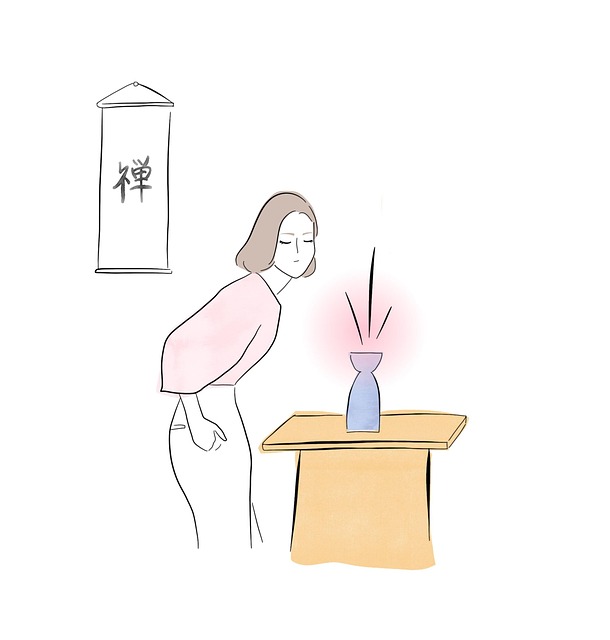Littleton Chronic Pain Therapy prioritizes patient safety and efficacy through comprehensive risk assessments, analyzing medical history, medications, and psychological health to identify potential risks like side effects or dependency. They offer personalized, holistic treatments including mindfulness, physical therapy, and exercise guidance, plus community outreach and journaling exercises for mental wellness. With a dynamic approach, continuous risk minimization, and "Mind Over Matter" principles, Littleton Chronic Pain Therapy equips patients with coping skills to manage chronic pain effectively while fostering a supportive, adaptive work environment.
Risk assessment and harm minimization planning are paramount in providing safe and effective Littleton chronic pain therapy. This article delves into three crucial components essential for ensuring patient safety. Firstly, it explores understanding risk assessment specific to chronic pain therapy at Littleton. Secondly, it outlines implementing comprehensive harm minimization strategies. Lastly, it emphasizes continuous evaluation and adaptation for optimal, safe patient care.
- Understanding Risk Assessment for Chronic Pain Therapy at Littleton
- Implementing Harm Minimization Strategies: A Comprehensive Plan
- Continuous Evaluation and Adaptation for Safe Patient Care
Understanding Risk Assessment for Chronic Pain Therapy at Littleton

At Littleton Chronic Pain Therapy, risk assessment is a cornerstone of patient care, ensuring safe and effective treatment. It involves a comprehensive evaluation of each patient’s unique circumstances, including medical history, current medications, and psychological well-being. This meticulous process identifies potential risks associated with chronic pain management, such as medication side effects, dependency, or adverse reactions. By understanding these risks, healthcare providers in Littleton can tailor interventions to mitigate harm.
In the context of Burnout Prevention Strategies for Healthcare Providers, risk assessment plays a crucial role in promoting mental wellness. It helps identify individuals susceptible to burnout, allowing for early intervention and personalized strategies like Mental Wellness Journaling Exercises. This proactive approach not only enhances patient outcomes but also fosters a healthier work environment, reducing the likelihood of burnout among healthcare professionals dedicated to Littleton Chronic Pain Therapy.
Implementing Harm Minimization Strategies: A Comprehensive Plan

Implementing harm minimization strategies is a multifaceted process that goes beyond treating symptoms; it’s about empowering individuals to take control of their well-being, especially in managing chronic pain. At Littleton Chronic Pain Therapy, we recognize that each patient’s journey is unique, and thus, our comprehensive plan adapts to individual needs. This involves a combination of evidence-based treatments, such as mindfulness practices, physical therapy, and tailored exercise guidance, designed to reduce pain intensity and improve quality of life.
Beyond the clinical setting, we foster mental wellness through initiatives like community outreach programs and empathy-building strategies. These activities encourage patients to connect with supportive networks, fostering a sense of belonging and resilience. Incorporating Mental Wellness Journaling Exercise Guidance into our harm minimization plan further equips individuals with self-care tools, enabling them to actively participate in their journey towards reduced pain and enhanced overall well-being.
Continuous Evaluation and Adaptation for Safe Patient Care

At Littleton Chronic Pain Therapy, we understand that providing safe and effective patient care requires an ongoing commitment to risk assessment and harm minimization. This involves a continuous evaluation process where our team meticulously analyzes every aspect of treatment, from medication management to therapeutic interventions. By regularly reviewing and adapting our practices, we ensure that our patients receive the highest level of care tailored to their unique needs.
This dynamic approach incorporates the principles of Mind Over Matter, fostering coping skills development among individuals navigating chronic pain. We recognize that trauma support services are integral to holistic healing, and our dedicated staff remains vigilant in identifying potential risks, implementing necessary precautions, and promptly adjusting treatment plans as new information emerges. This commitment to adaptation guarantees that Littleton Chronic Pain Therapy continues to be a trusted partner in managing and overcoming chronic pain.
In conclusion, effective risk assessment and harm minimization planning are paramount in providing safe and compassionate Littleton Chronic Pain Therapy. By understanding potential risks, implementing comprehensive strategies, and continuously evaluating patient care, healthcare professionals can ensure the best outcomes for patients while minimizing adverse events. This approach not only enhances patient safety but also fosters trust and satisfaction within the unique context of chronic pain management.














